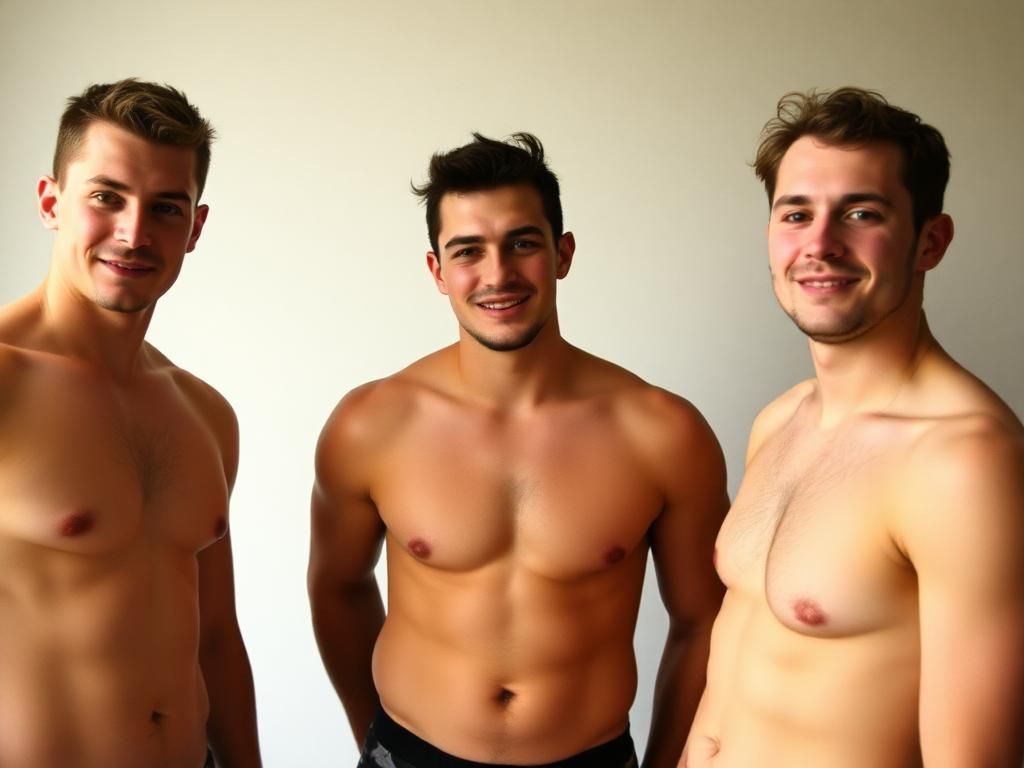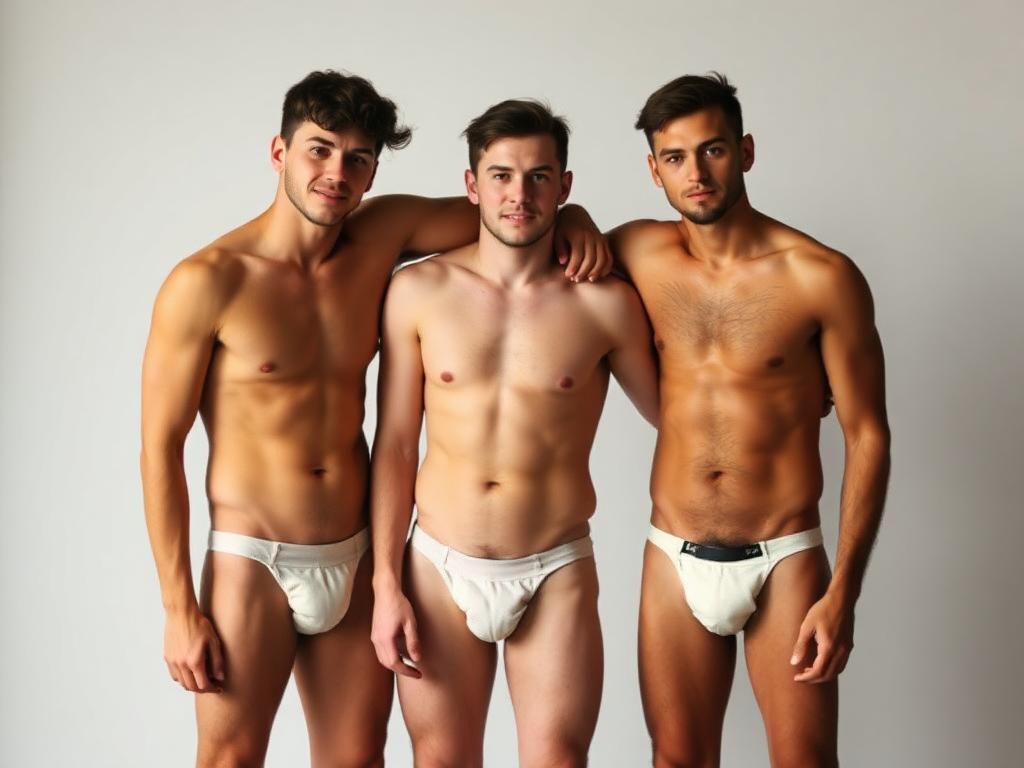Young men today navigate a complex landscape when it comes to body image, self-acceptance, and societal perceptions of nudity. This article delves into the cultural significance of naked young guys and how these themes intersect with history, media representations, and health considerations. By understanding these dynamics, we can appreciate the journey towards body positivity and the deeper implications of nudity in society.
Historical Context
Attitudes Toward Male Nudity Through the Ages
Throughout history, the perception of male nudity has evolved dramatically.
Ancient Civilizations: In ancient Greece, the male body was celebrated for its strength and beauty, prominently featured in art and athletic competitions like the Olympics. Public nudity was not just accepted but revered. The Romans, too, embraced nudity in everyday life, especially in public baths that served as social hubs.
Middle Ages to Renaissance: As Europe moved into the Middle Ages, the views on nudity shifted drastically. With the rise of religious conservatism, display of the naked body became taboo. However, the Renaissance marked a resurgence of interest in the human form, best illustrated through erotic art and a growing appreciation for the nude in painting.
Modern Era: The 20th century witnessed a significant shift with the advent of the sexual revolution. Nudity began to appear more regularly in media, leading to a gradual desensitization concerning the male body. It became increasingly portrayed in a manner that evokes confidence and acceptance, particularly in the growing fitness culture.
Cultural Differences in Perception
Cultural contexts play a significant role in how nudity is perceived globally.
Eastern vs. Western Perspectives: In many Eastern cultures, nudity is often intertwined with spiritual rituals and traditional practices, viewed as a form of liberation rather than sexuality. In contrast, Western norms typically associate nudity with sexual contexts, leading to a more complicated relationship with the naked body.
Indigenous Cultures: Indigenous cultures often express identity and freedom through nudity, challenging conventional views and embracing naturalism. This openness promotes a connection between the individual and their surroundings, emphasizing freedom from societal constraints.
Body Image and Self-Acceptance
The Impact of Media
Media plays a pivotal role in shaping perceptions of the naked young guys narrative.
Representation in Film and Television: While there are positive portrayals of young men embracing their bodies, many media representations focus on unrealistic standards. Films often depict male characters with seemingly perfect physiques, leading to viewer comparisons that can foster feelings of inadequacy.

Social Media Influence: The rise of social media has birthed a new era of visibility for young men. Fitness influencers often celebrate their bodies but also create an environment where comparisons flourish. This pressure can lead to negative body image issues, particularly when young men feel they do not measure up to these curated images.
Constructing Masculinity
The relationship between nudity and masculinity is complex and ever-evolving.
Nudity and Masculine Identity: Challenging traditional norms of masculinity involves encouraging vulnerability and self-acceptance. Embracing nudity can be seen as a way to reclaim men’s bodies from societal expectations and promote a more holistic view of masculinity.
Body Positivity Movements: Various organizations and bodies are at the forefront of promoting body positivity among young men. These movements encourage acceptance and appreciation of diverse body types, fostering an environment where young men can thrive and build self-confidence.
Health and Wellness Implications
Psychological Effects
Understanding the psychological effects of body image is crucial for young men.
Mental Health and Body Image: Body shaming and sexualization can lead to detrimental mental health outcomes. To combat this, initiatives such as community body positive workshops can foster environments of support and acceptance, promoting self-esteem among young men.
Therapeutic Uses of Nudity: Interventions like nude retreats and workshops focus on body acceptance—allowing participants to embrace their bodies in a judgment-free zone. Art therapy sessions that incorporate nudity can help dismantle negative perceptions, promoting healthier self-images.
Physical Health Benefits
The benefits of nudity extend beyond psychological well-being.
Benefits of Nude Recreation: Engaging in nude recreational activities, like nature hikes or beach outings, encourages freedom of movement and fosters a healthy lifestyle. This approach emphasizes the joy of being in nature and can inspire greater body confidence.
Skin Health and Sun Exposure: While sun exposure can be beneficial for vitamin D synthesis, it’s crucial to practice safe sun habits to avoid skin damage. Embracing nudity outdoors can be part of a balanced health strategy, provided individuals take necessary precautions.

Legal and Ethical Considerations
Laws Surrounding Nudity
Understanding the legal context of nudity is essential.
Public Decency Laws: Public decency laws related to nudity vary significantly across countries and states. Some areas embrace nudism, while others impose strict laws. Notable controversies highlight the ongoing debates surrounding public nudity rights.
The Role of Consent: Navigating shared spaces requires a solid understanding of consent. Ethical photography and media representation must prioritize the dignity and boundaries of individuals, ensuring respectful portrayals of nudity.
Online Representation
The digital landscape has transformed how nudity is perceived and shared.
Navigating Digital Spaces: With the rise of adult content, issues of consent and privacy have emerged. Ensuring that platforms promote healthy attitudes towards nudity is critical for fostering a positive online community.
Conclusion
Summarizing the exploration of naked young guys, we recognize the evolving perspectives on nudity shaped by cultural norms, media influences, and legal frameworks. This article has emphasized the significance of body positivity and self-acceptance in today’s society, encouraging young men to embrace their bodies confidently.
Call to Action
We invite readers to share personal experiences and insights regarding body image and nudity. Join the movement towards promoting body positivity and acceptance by participating in body-positive initiatives and workshops.
Further Reading and Resources
- Body Positive Organization
- National Gay and Lesbian Task Force
- Books: “The Body Keeps the Score” by Bessel van der Kolk
- Articles: Various online articles on body image and societal expectations
- Support Groups: Local body positivity or mental health groups
- Social Media Influencers: Follow accounts that promote body positivity, like @thebodyposipanda
| Aspect | Details |
|---|---|
| Historical Attitudes | Shifts from celebration in ancient cultures to modern interpretations |
| Cultural Perspectives | Differences between Western and Eastern norms surrounding nudity |
| Media Influence | Positive and negative representations in film, television, and social media |
| Body Image | Impact of body shaming and how positivity movements counteract these effects |
| Health Benefits | Psychological and physical health benefits of embracing nudity |
| Legal Considerations | Variability of public decency laws and issues of consent |
FAQs
- What does “naked young guys” refer to? It refers to the cultural perceptions and implications of nudity among young men.
- How has historical context influenced modern views on male nudity? Historical celebration in ancient times contrasts sharply with modern taboos and evolving attitudes.
- What role does media play in body image for young men? Media can both positively and negatively influence how young men view their bodies.
- Are there health benefits to nude recreation? Yes, it can promote freedom of movement and enhance body confidence.
- What are some ethical concerns regarding nudity? Consent, representation, and the impact of public decency laws are critical ethical aspects.
- What resources exist for promoting body positivity? Various organizations, support groups, and social media influencers work towards fostering body positivity.
